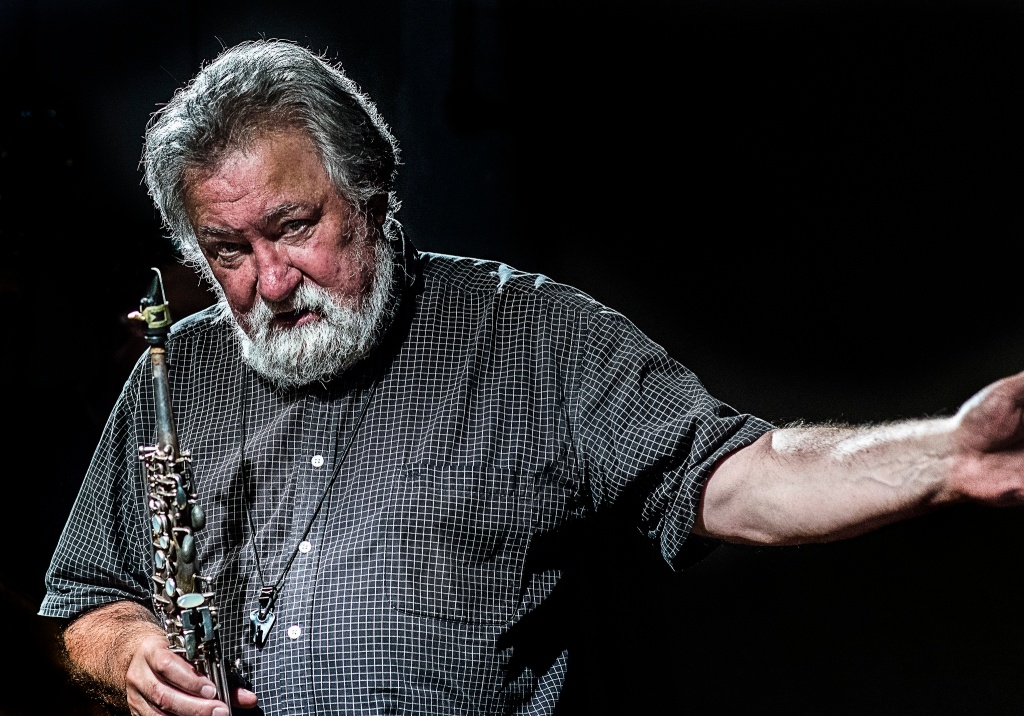
As part of the wonderful concert at mac last week celebrating Evan Parker’s 80th birthday, Evan gave a short interview at the beginning of the concert. He talked of his time as a student of Botany at the University of Birmingham when he spent most of his time playing jazz in various venues in Birmingham, the basement of the Guild of Students’ chapel which was set up as a jazz club, the Grotto pub in the city centre and The Elbow Room out in Aston. He told the story of how he could claim that he had accompanied Shirley Bassey because the staff at The Elbow Room did not like what his group was playing, so kept on the television on which Shirley Bassey was performing at the time. He spoke of his early influences, notably from John Coltrane who he heard play live when the Coltrane Quintet with Eric Dolphy toured the UK in November 1961. He went to state that the early inspiration for the free jazz movement in Europe, particularly in the UK and Germany, came from players such as Albert Ayler, Ornette Coleman and Coltrane in his late period, and was not a movement that developed independently of the US scene. The distinctive European approach to free jazz, e.g. the Spontaneous Music Ensemble in the UK, or the Globe Unity Orchestra in Germany, emerged from those early influences from the US scene.
One of the most interesting things that came out of the interview was Evan’s opinion that free jazz and improvised music, although still an underground movement, has had a strong influence on contemporary jazz, especially in Europe. There are many excellent free players who make improvised music their main activity, but also many players and groups that incorporate an element of free playing into a more stuctured approach. Here I am thinking of a group such as Let Spin whose music features their original compositions, but they move in and out these tunes spontaneously and in the moment. I am also thinking of a young player such as Binker Golding who is very much part of the young UK scene in the Binker and Moses group, but also enjoys playing free jazz with John Edwards and Steve Noble; he has also recorded with Evan. Furthermore, many groups in Europe follow a pattern established by the original recordings by Ornette Coleman’s groups (The Shape of Jazz To Come and Change Of The Century) in which a composition, often quite abstract in nature, is followed by freely improvised solos after which the composition is repeated, an approaoch often referred as ‘time no changes’. I could also mention the Ahmed group, heard at Cafe Oto last week, who concentrate on one particular composition in each set, and create intense, high energy rhythmic improvisations based on the composition.
It strikes me that any player learning to play jazz today needs to develop skills in free improvisation as well as skills in improvising over the harmonic changes. This is not to suggest that free improvisation skills are more important than the more traditional harmonic approaches to improvisation; rather that a young musician needs to have the experience of playing in a free context or incoporating elements of free playing into a structured situation and to develop skills in that area of the music.